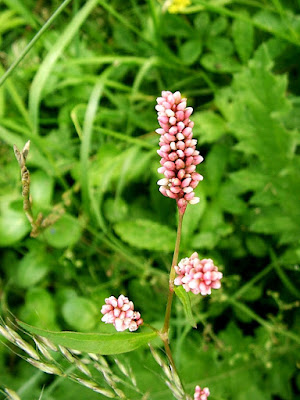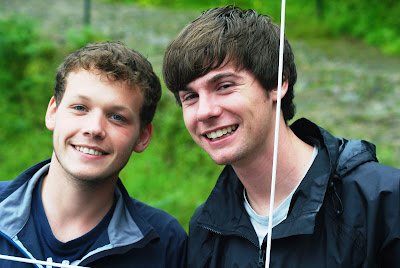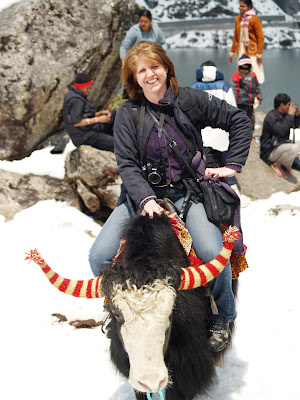This blog may help people explore some of the 'hidden' issues involved in certain media treatments of environmental and scientific issues. Using personal digital images, it's also intended to emphasise seasonal (and other) changes in natural history of the Swansea (South Wales) area. The material should help participants in field-based modules and people generally interested in the natural world. The views are wholly those of the author.
Saturday, 30 September 2023
Plants We Used to Use 12. Pink oxalis or Sorrel
A UK alien but, in the Andes, its tubers and leaves were eaten to prevent scurvy (vitamin C deficiency). Ingesting too much oxalic acid, however, causes digestive problems.
On a Plate!
Open net salmon farming is very big business in Norway and Scotland. This practice is now also growing dramatically in Iceland (often under Norwegian ownership). Tens of thousands of farmed fish have recently escaped from their Icelandic pens. People running those concerns, have been very loath to admit the 'breakouts' (it's a criminal offence). There's growing concern that the escaping farmed fish will endanger the viability of wild salmon (https://www.theguardian.com/environment/2023/sep/30/thousands-of-salmon-escaped-an-icelandic-fish-farm-the-impact-could-be-deadly). Wild salmon have complex life history. They hatch from eggs, released in river gravel. The young salmon then migrate to the sea to grow and mature. The mature fish eventually return to the rivers (often their hatching location) to breed and die. Farmed salmon are, however, selected to mature faster and younger than wild fish. It improves profitability for the farmers. It's been shown interbreeding between wild fish and escapees occurs. This produces offspring who also mature faster and younger. This is very likely to undermine the ability of the species to reproduce in nature. Migration is energy-demanding.
Friday, 29 September 2023
Plants We Used to Use 11 Redshank
I've not posted on this topic for ages. The former uses of plants are, however, interesting. Redshank (Persicola maculosa) was used herbally in the treatment of diarrhoea. Fresh leaves were used to staunch bleeding. Leaves and young shoots served as vegetables.
Seeing the Changes 1884
Given the sad vandalising of the Hadrian's Wall Sycamore (https://www.theguardian.com/environment/2023/sep/29/sycamore-gap-tree-attack-is-part-of-war-on-nature-in-uk-says-poet), it seems beneficial to concentrate on growth.
British Values
When I was a child, growing up on a Salford Council Estate, it was notable how many of our neighbours switched to voting for the Conservative party, once they had acquired their first car. Some 70 years later, the UK's PM seems to be hoping for something similar. He's described the impositions of a 20 mph speed limit in built-up areas and Ultra-Low Emissions Zones, as being an 'attack on motorists' as well as being against 'British values' (https://www.itv.com/news/wales/2023-09-28/what-the-prime-minister-thinks-about-wales-new-default-20mph-speed-limit). The logic seems to be that 'true Brits' are car drivers, who don't mind the possibility of killing a few extra folk to carry on 'doing their thing'. People hit by a car, travelling at 20 mph, are much less likely to die or be seriously injured. Roaf Traffic Accidents cost the National Health Service millions. The air pollution, driven by emissions from petrol and diesel-fuelled cars, also damages health and reduces life expectancy, especially in urban folk living by busy roads. There may still be votes, however, in those 'petrol heads'.
A Matter of Deepest Gravity
Scientists at CERN in Switzerland appear to have shown that there's no such thing as antigravity. Antimatter is the mirror image of matter. It's made of antiprotons (with the same mass as a proton but a negative charge) and positively-charged antielectrons. The scientists made antihydrogen (an antiproton with an associated antielectron) and subjected it to gravity. It 'fell' downwards, just like regular hydrogen (https://www.theguardian.com/science/2023/sep/27/scientists-find-antimatter-is-subject-to-gravity). Antimatter doesn't have an antigravity alternative. Only certain politicians and particularly noxious 'celebrities' appear to fall upwards.
Thursday, 28 September 2023
Ice, Baby, Ice!
If humans manage to stick to the Paris agreement (very unlikely) of limiting global heating to 1.5 degrees Centigrade above Pre-Industrial levels, a half of the planet's glaciers will be lost. If the current track is continued to a 2.7 degree rise, 68% of glaciers will disappear (https://www.theguardian.com/environment/2023/jan/05/half-planets-glaciers-gone-2100-even-under-paris-15c-accord-data-finds). The planet has a lot of water but much of it is in the oceans. Fresh water is a surprisingly scarce commodity. Many Earthlings don't have a regular supply of drinking water. The loss of glaciers will exacerbate this problem. Glaciers are 'rivers of ice' that have traditionally released their fresh water, in a relatively controlled manner, over the seasons. Without them, agriculture is likely to fail in many regions of the planet.
Climate Lawsuits
There's been lots of attempts by young people to draw attention to inadequate governmental action on climate change. One way is to sue. The routine charge is that the current government inactivity puts that young person's future health and lives at greater risk. One of the latest group of litigants is a group of young people, aged 11-24, from Portugal. They are suing 32 nations, in a Strasbourg court, after the devastating wildfires in Leiria (https://www.euronews.com/my-europe/2023/09/27/court-case-over-climate-inaction-against-32-countries-opens-at-the-european-court-of-human). There's no doubt that slow government responses to climate change particularly increase the risks for future generations. The odds are, however, stacked against the litigants. Governments can (and do) employ expensive lawyers at tax-payer's expense. Even if the litigants win, rulings can often be ignored. Compensation, if paid, doesn't even come out of the decision maker's own pockets. That compensation should really be due to entire populations. The elderly are not around as long but are especially at risk in heatwaves, wildfires and flooding. The litigation could, however, at least embarass some governments (not, presumably, the UK?) to take their responsibilities a little more seriously.
UK: Extinction Central
The UK is the most biodiversity-depleted country in Europe. One in six of its current species of animals, fungi and plants are now at risk of extinction. For a country that pioneered much of natural history and has repeatedly waxed lyrical about nature, this should be devastating news (https://www.theguardian.com/environment/2023/sep/27/species-risk-extinction-great-britain-wildlife-state-of-nature-report). Since 1970, when I started teaching Biological Sciences, the abundance of species in a recent report by leading wildlife scientists, have declined by an average of 16%. Many species of terrestrial mammals, birds and amphibians are described as being in 'freefall'. The declines, of course, are basically driven by human activities. These notably include agriculture, development, water treatment as well as inappropriate use of fertilizers, herbicides and insecticides. The organisms that populate UK ecologies pollinate crops, kill pests, recycle dead organic material, clean our waters etc. Without these 'services', worth millions of pounds, we'll eventually be living in a sterile wasteland. The fact that some conservation programmes seem to be having beneficial effects is of limited consolation. UK organisms shouldn't have to be on 'life-support'. Many decision makers in the UK actually appear to be willfully ignorant about environmental issues ('green crap'). Money talks much louder than the environment in this country. Without the environment, however, there's no country.
Wednesday, 27 September 2023
Rosebank: The Clue's in the Name!
Although its government claims that giving a go-ahead for the Rosebank project will improve the UK's fuel security, it's really everything to do with banking profits. Shetland's Rosebank oil field will be exploited by Oslo-listed Equinor and the British firm Ithaca. This project will yield circa 500 million barrels of oil over its lifetime. That oil, although in UK waters, will not be UK property. Oil and gas will simply go on to the International market, before some of it's imported back into the UK. Most of the refining of extracted crude, will take place elsewhere (Norway and the Netherlands). The UK certainly won't be given a discount or even any priority, because it supplied the hydrocarbons (https://www.theguardian.com/business/2023/sep/27/uk-gives-go-ahead-to-develop-rosebank-oil-and-gas-field-in-north-sea). Most environmentalists, the Scottish parliament and even some Westminster Conservatives, regard Rosebank's go-head as a very bad move. It will only ratchet-up 'greenhouse gas' emissions even further. UK drivers of petrol and diesel cars, will not get their fuel any cheaper. It also seems highly unlikely the exploiting oil companies will use any of their substantial profits to ameliorate climate change. The best advice still is to 'leave it in the ground'.
Some of My Favourite Pictures of Sikkim (Indian Himalayas) Field Courses
Pictures of a joint Biological Sciences/Geography Swansea field trip to Sikkim in NE India. A third the size of Wales but with the world's 3rd highest peak.
Subscribe to:
Comments (Atom)
-
I n the UK and US, a pparently popular and successful vegan/vegetarian restaurants are reportedly closing or adding meat to their menus ( ...
-
Early ripening fruit may seem convenient but some folk think it confirms environmental stress. There's also a possibility th...



























































































%20mating%20NWCW.jpg)

